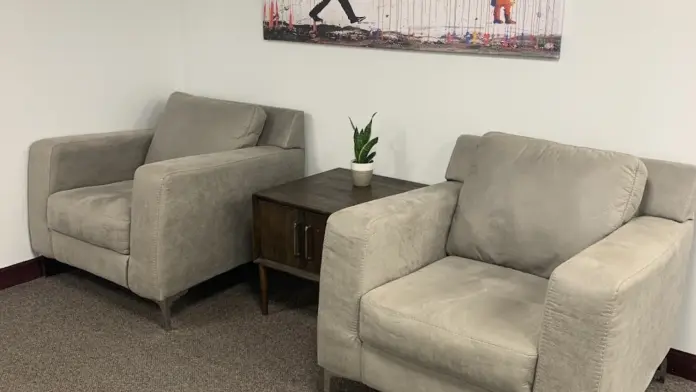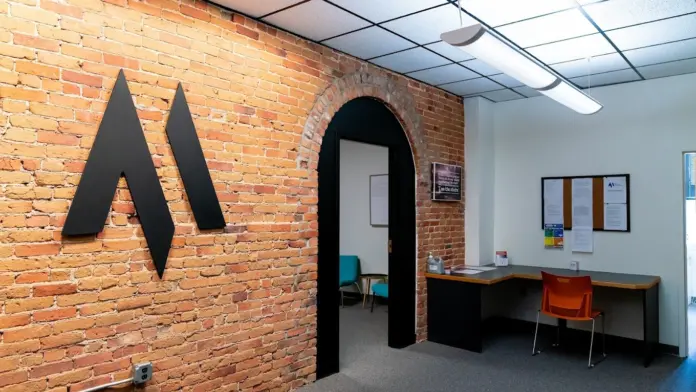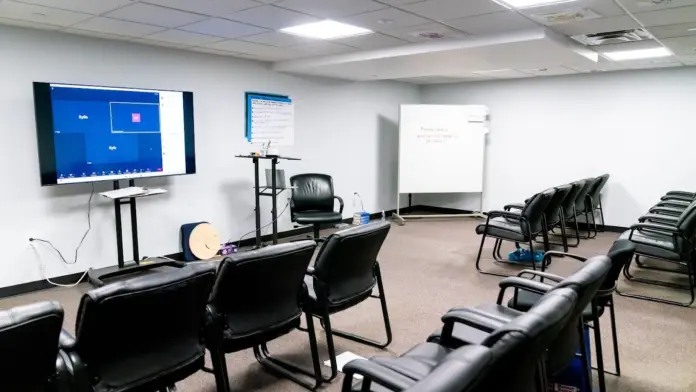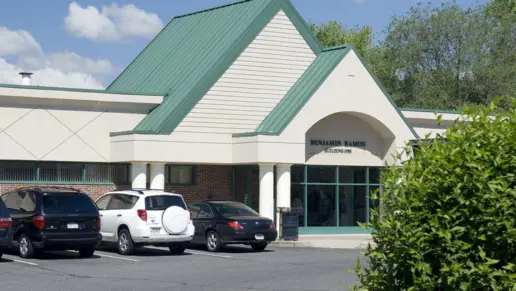About Meta Addiction Treatment
They offer supervised medical treatment to safely manage withdrawal symptoms during detoxification, as well as flexible outpatient addiction therapy allowing patients to live at home while receiving regular treatment. Additional levels of care offered include intensive outpatient, 12-step therapy, and intervention services.
Specialty rehab programs at Meta Addiction Treatment include tailored care focusing on women’s specific needs and experiences, gender-specific addiction treatment addressing unique challenges faced by men, and age-appropriate treatment for teens addressing adolescent-specific issues.
For recreation, patients can express themselves creatively with art activities, use the acupuncture room to support holistic recovery, or get some exercise and healthy competition on the tennis court.
Meta Addiction Treatment has received accreditations from The Joint Commission.
Rehab Score
Gallery





Location
Accepted Insurance
Other Forms of Payment
Private insurance refers to any kind of healthcare coverage that isn't from the state or federal government. This includes individual and family plans offered by an employer or purchased from the Insurance Marketplace. Every plan will have different requirements and out of pocket costs so be sure to get the full details before you start treatment.
Self-pay involves paying for treatment out of your own pocket. You can use savings or credit, get a personal loan, or receive help from family and friends to fund your treatment. If you don't have insurance or your insurance plan doesn't cover a specific program, self-pay can help ensure you still get the care you need.
Military members, veterans, and eligible dependents have access to specific insurance programs that help them get the care they need. TRICARE and VA insurance can help you access low cost or no cost addiction and mental health treatment. Programs that accept military insurance often have targeted treatment focused on the unique challenges military members, veterans, and their families face.
Addiction Treatments
Levels of Care
Programs

Clinical Services
During cognitive behavioral therapy in Massachusetts, clients work with a trained counselor to identify negative thinking patterns and change them. This change in thinking has been shown to lead to changes in behavior to treat substance use and mental health disorders effectively.
If you are experiencing intense, negative emotions, dialectical behavior therapy can help you learn how to regulate painful emotions and manage the interpersonal situations that generate them. This method is often used during substance use treatment in Massachusetts to help you develop better coping skills and avoid relapse.
Group therapy is a safe space for participants to share their stories and experiences within a confidential and judgment free environment. You have the opportunity to openly discuss your difficulties and create a network of community support that can extend long after group therapy sessions end.
Therapists in Massachusetts offer individual therapy in a confidential setting to help you explore the complex factors that have contributed to your drug addiction. Using a tailored approach, your therapist supports you and utilizes evidence based treatment modalities to help you develop healthier thought patterns and behaviors. This builds a foundation for enduring sobriety.
The life skills you'll learn in rehab range from financial management to practicing healthy self care. They help you learn how to solve problems and make decisions, as well as develop healthy interpersonal relationships – all of which are key to successful recovery.
During family therapy, the therapist works with every member of the family unit to understand the role they play in their loved one's addiction. By addressing these patterns, family members learn healthier ways to interact with each other and contribute to a more effective recovery journey for the family member who is addicted.
There is a strong link between nutrition and addiction. That's why drug rehab in Massachusetts includes nutrition therapy to teach you healthy eating habits that support addiction recovery. You'll learn what foods your body needs for healing and long term health.
Accreditations

The Joint Commission, formerly known as JCAHO, is a nonprofit organization that accredits rehab organizations and programs. Founded in 1951, the Joint Commision's mission is to improve the quality of patient care and demonstrating the quality of patient care.
Joint Commission Accreditation: Yes
Contact Information
55 Concord Street
North Reading, MA 01864












